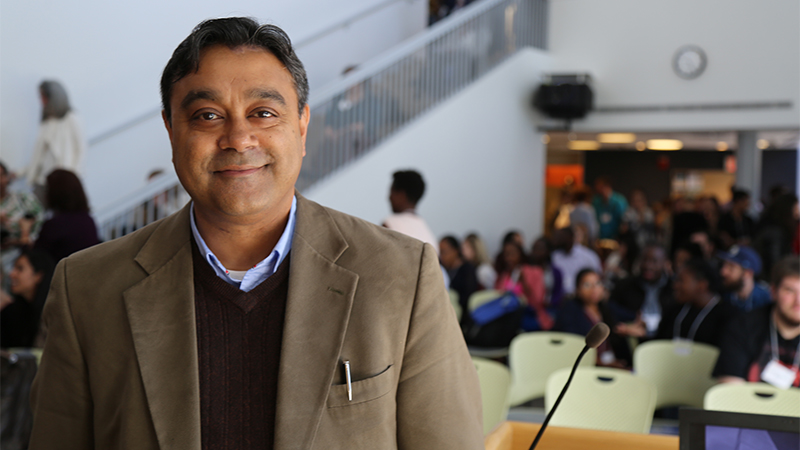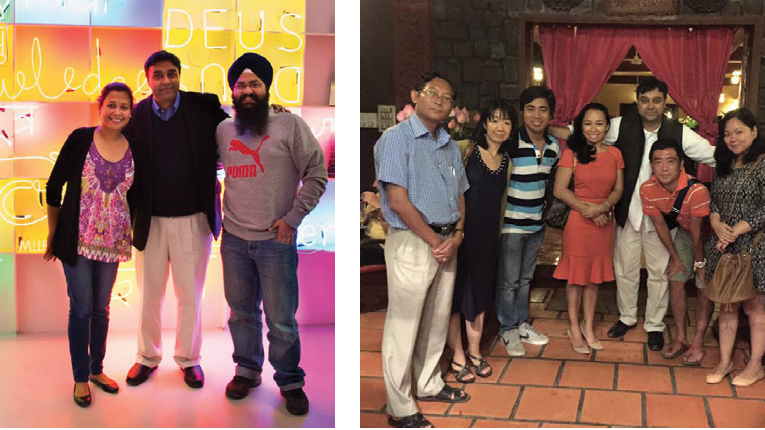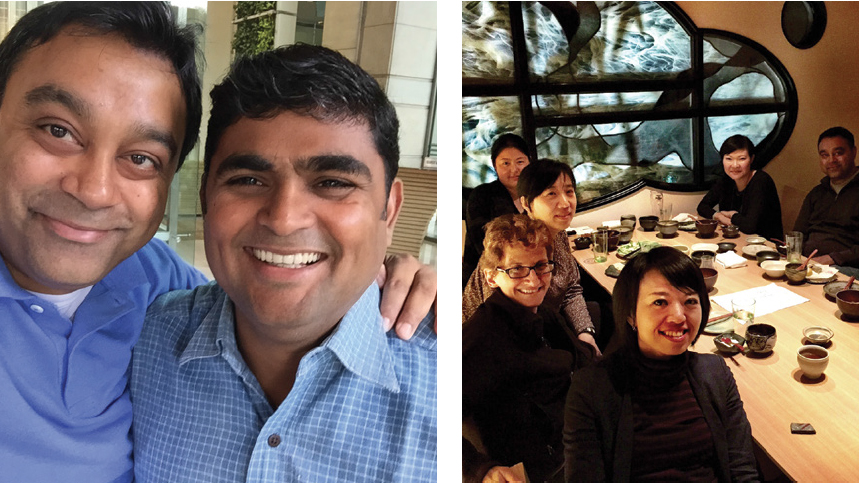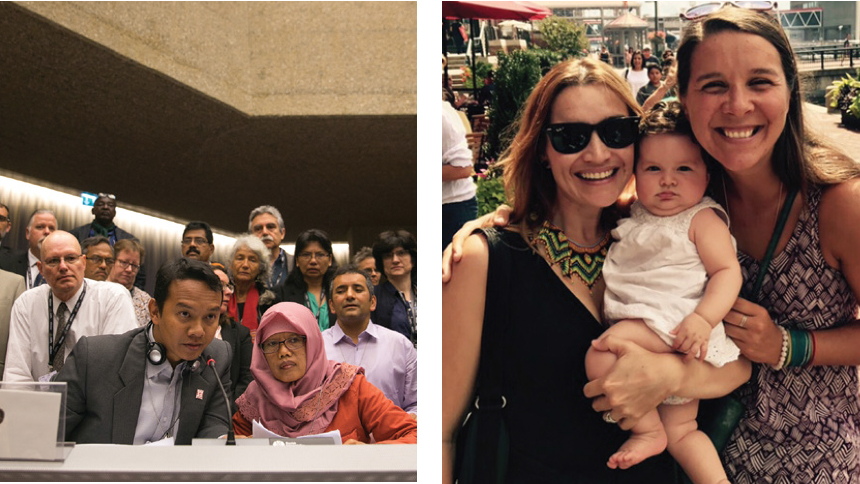
By Max Pearlstein '01
Ravi Lakshmikanthan, MA SID’99, has a lot of Facebook friends … and if you’re a Heller alum who graduated within the past 20 years, there’s a decent chance you’re one of them.
Lakshmikanthan is Heller’s assistant dean for academic and student services, but he may be just as well known as the school’s unofficial social media envoy.
“It usually starts with job postings — every day, Heller alumni are posting them on platforms like LinkedIn and Facebook,” Lakshmikanthan says. “Even though students may create their own Facebook groups, I’m still connected to them individually, and I’ll share job opportunities with people who are outside of a particular group.”
“Outside” is the operative word here. As Lakshmikanthan explains, social media is an ideal tool for connecting with alumni who are often mobile. Even if they frequently change addresses, alumni consistently check their social accounts and often list their current country within their profile information.
If Lakshmikanthan learns that a Heller alum is moving to a new region and would benefit from a local network, it’s easy for him to search among his social audience for other alumni who are already there. Usually, he doesn’t have to look very far.
“For example, I recently saw that an alum who I’m Facebook friends with posted a picture from Iraq,” he says. “We had a recent graduate from Iran who was going to work in Iraq and didn’t know anyone. I introduced them. Now, they’re going to connect on the ground.”

Lakshmikanthan, who is of Indian origin, knows the value of a good greeting, especially when someone is just arriving in a new part of the world. When he began working at Heller two decades ago, he served as the program manager for the school’s first globally focused degree program, the MA in Sustainable International Development (SID).
“Back then, we used to go to the airport and pick people up during orientation,” Lakshmikanthan says. “Now we use a service, but we originally were making runs every day to meet people and bring them to Heller, because we felt it was one of the most important parts of welcoming someone to our community. Right from the beginning, we hoped that their bonds and ties to Heller were strong. Even today, when I meet alumni who graduated 10 or 15 years ago, they tell me that first trip to campus from the airport greatly impacted their Heller experience.”
Personal connection is at the heart of Lakshmikanthan’s philosophy when it comes to supporting students. It also connects with his doctoral research that is centered around internationalization, partnerships and collaboration in higher education. “An important part of being a welcoming community is acknowledging and understanding students’ various challenges,” he says. “We always treat the person as the number-one priority when we’re dealing with any issues, be they academic, personal or professional. And we make sure to link them to the resources they need.”
That support is critical for international students who may be coming to the United States for the first time and need to navigate the corresponding legal paperwork.
“The process changed significantly during my time here,” Lakshmikanthan says. “The struggles that people have with visas and working. Twenty years ago it wasn’t that hard — now it’s much more difficult.”

When he moved from the SID program into his current school-wide position, Lakshmikanthan took great pride in getting to know every student at Heller. He also cultivates and manages relationships with people and organizations outside of the school, in support of Heller’s growing research and academic ambitions.
He describes the strategy for international outreach as an “all-encompassing kind of effort” that included partnering with large-scale sponsoring institutions, all the way down to the individual connections he fostered with alumni working in specific fields or companies.
“If I would go to a place like Cambodia or Indonesia, the first point of contact would be local alumni. I would ask them questions like: ‘Who are you working with, and what would be good avenues for us given your knowledge of our programs and faculty? Where should we go, and who should we contact?’ They were tying us in to the regional pipeline.”
“When I go anywhere, reconnecting with local Heller community members and reminiscing with them about their time at Heller is important. They’re happy to give back in terms of networking opportunities, organizational outreach and other services that we can’t always measure in traditional ways.”
As an example, Lakshmikanthan talks about a recent trip to Israel, where he introduced an alumnus who works for the Japanese International Cooperation Agency, based in Tel Aviv, to Israeli alumni who are working in related fields. “They included him in their local professional community. You see those connections being made, and they’re lasting.”

Lakshmikanthan is part of a much larger and comprehensive Heller alumni outreach system, of course, but sometimes it’s the simple steps, like meeting people on his travels, which can be truly effective.
“Sometimes it takes somebody to spark those connections,” he says. “Everyone is really busy in their work, and even though they think about it quite a bit, alumni have often told me that my visit is an excuse for them to reconnect both with Heller and each other because they get so absorbed in their daily lives.”
Lakshmikanthan says the alumni he meets often speak of a favorite Heller faculty or staff member, or a significant experience they had collaborating with peers on a class project. In this way, he serves as a conduit to their memories of the Heller community. He also makes sure to bring along some Heller swag to reignite their institutional affinity.
“All the time — keychains or T-shirts. If they have children, I may bring clothes for the kids that have Brandeis or Heller on them, and there are always smiles and fond memories,” Lakshmikanthan says. “They are so happy to have things from the place that they called home during an important time in their lives. They feel a strong connection to us in a lot of different ways. They are definitely our ambassadors.”
This article originally appeared in the Winter 2017 issue of Heller Magazine.
